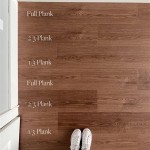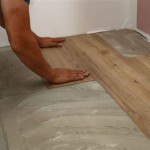Should You Seal Bathroom Floor Grout?
When it comes to maintaining a spotless and hygienic bathroom, sealing bathroom floor grout is a crucial step that often gets overlooked. Grout, the material that fills the gaps between tiles, is a breeding ground for mold, mildew, and bacteria if left unsealed. But is sealing grout really necessary, and if so, what are the benefits?
Here's a comprehensive guide to help you decide:
Benefits of Sealing Grout
Prevents Stains: Grout is porous and easily absorbs liquids, which can lead to unsightly stains. Sealing it creates a protective barrier that repels water and prevents staining from everyday spills.
Inhibits Mold and Mildew Growth: Moisture trapped in unsealed grout provides a perfect environment for mold and mildew to thrive. Sealing grout seals off these areas, preventing moisture penetration and thus inhibiting microbial growth.
Reduces Maintenance: Sealed grout is easier to clean and maintain. The protective layer prevents dirt and grime from adhering to the surface, making regular cleaning a breeze.
Prolongs Grout Life: Sealing grout strengthens it and prevents cracking or crumbling. This prolongs the life of the grout, reducing the need for costly repairs or replacements.
When to Seal Grout
Grout should be sealed as soon as possible after installation. It is essential to wait for the grout to cure completely, usually within 24-48 hours. Avoid sealing grout that is still wet or damp.
Types of Grout Sealers
There are two main types of grout sealers:
- Penetrating Sealers: These penetrate the grout pores, creating a water-resistant barrier. They are ideal for areas with moderate to heavy moisture.
- Surface Sealers: These form a thin film on the grout surface, providing protection against moisture and stains. They are suitable for areas with light to moderate moisture.
How to Seal Grout
1. Prepare the Surface: Clean the grout thoroughly with a tile cleaner and allow it to dry completely.
2. Apply Sealer: Using a small brush or sponge, apply the sealer evenly to the grout lines. Ensure complete coverage.
3. Wait and Remove Excess: Allow the sealer to dry according to the manufacturer's instructions. Once dry, use a damp cloth or sponge to wipe away any excess sealer.
Maintenance of Sealed Grout
To maintain the effectiveness of the grout sealer, it is important to reapply it every 1-3 years, depending on the type of sealer used and the amount of wear and tear the bathroom experiences.
Conclusion
Sealing bathroom floor grout is a crucial step in maintaining a clean, hygienic, and aesthetically pleasing bathroom. By preventing stains, inhibiting mold growth, reducing maintenance, prolonging grout life, and adding a touch of shine, grout sealers play a vital role in preserving the beauty and longevity of your bathroom flooring.

Why It S Important To Seal Your Grout And How Do Yourself The Flooring Girl

How To Seal Grout Why It S Important Maria Louise Design

How To Properly Seal Grout

How To Clean Refresh And Seal Your Grout Easily Ly

Grout Sealing Services Sealer Professionals

How Often Do You Need To Seal Shower Grout Magnificent

Our Roosevelt Grout Sealing Service Brings Back This Bathroom S Elegance

How Long Does Grout Sealer Last The Medic

How To Seal Grout In Five Easy Steps Mapei Home

Are You Wondering What Grout Color Sealing Is And How It S Diffe From Traditional The Medic Of St Louis
See Also







